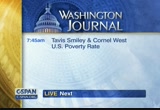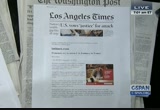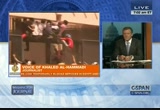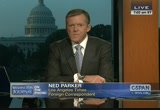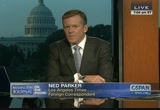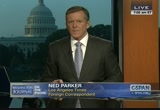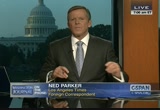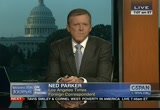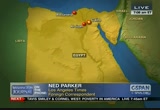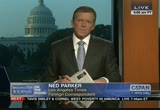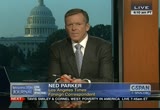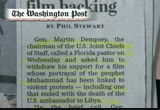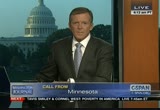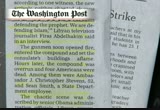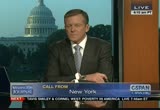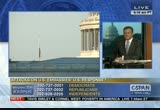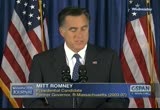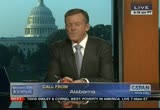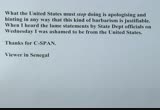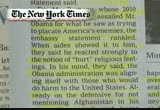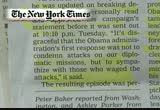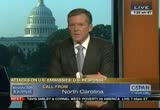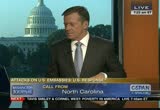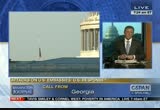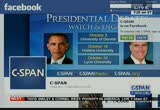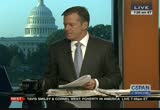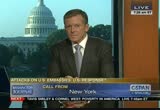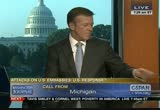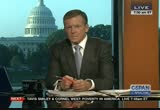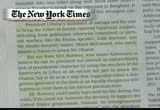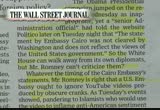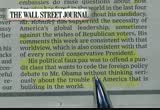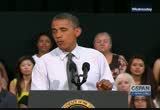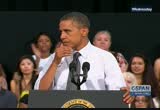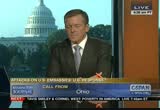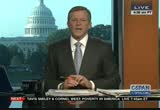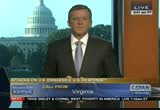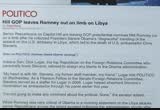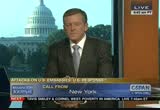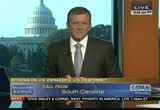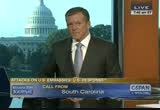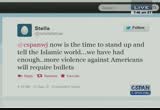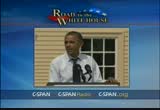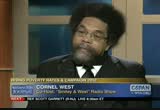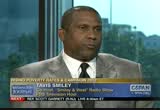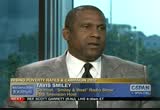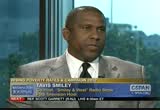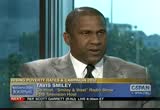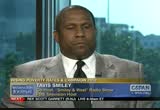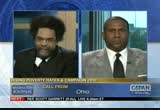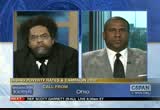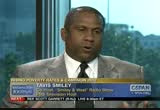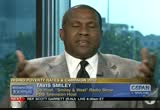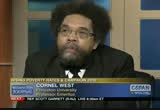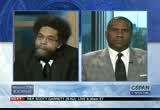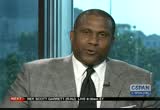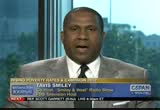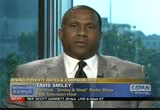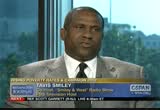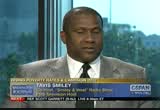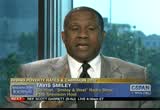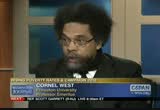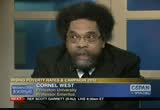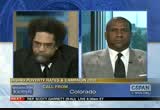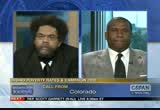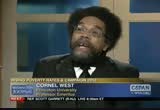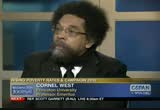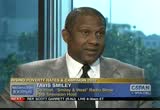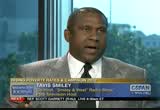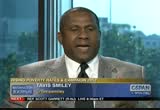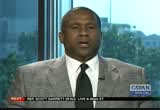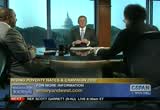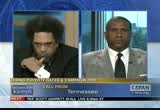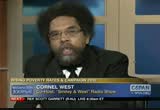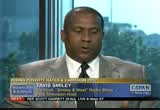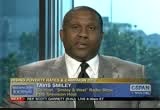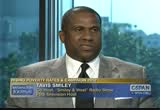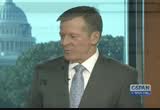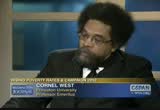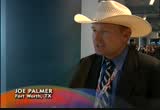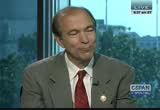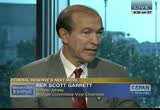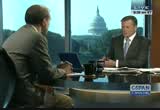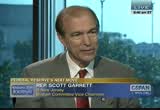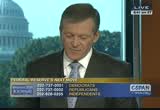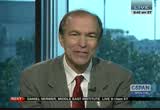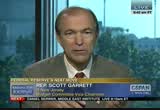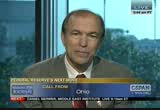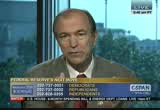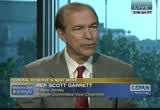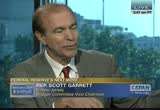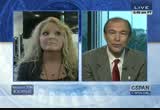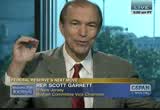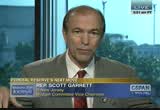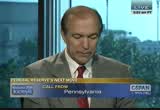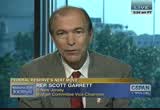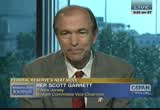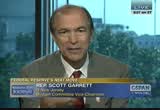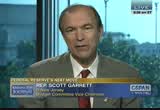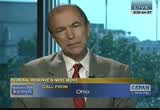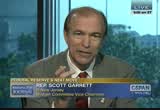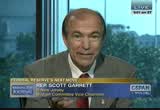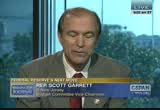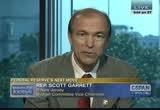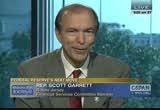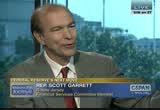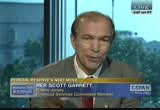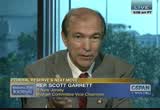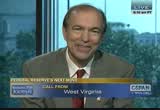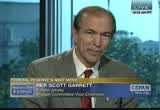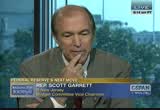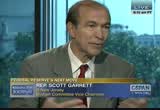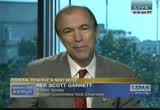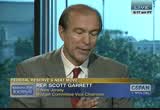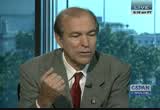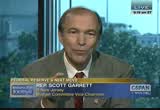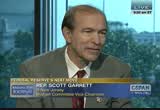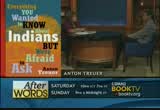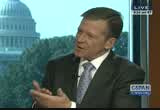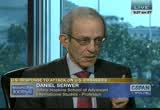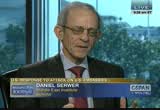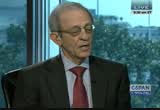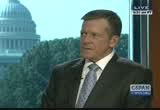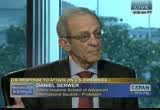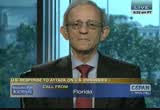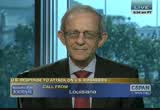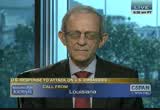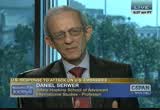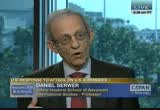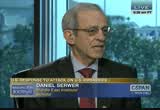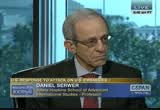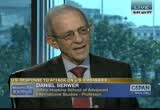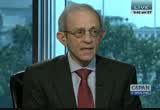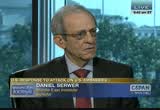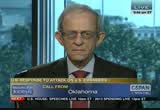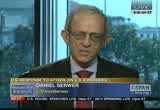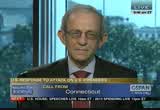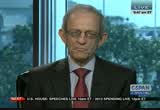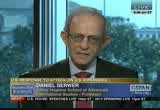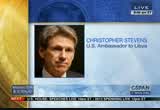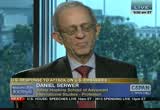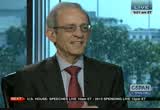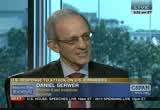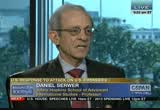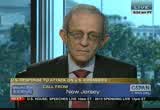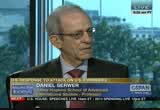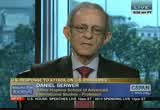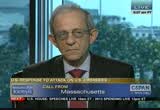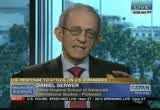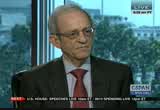tv Washington Journal CSPAN September 13, 2012 7:00am-10:00am EDT
7:00 am
but first, washington journal. in 45 minutes, the co hosts of smiley and west show will discuss the poverty rate. later, john hopkins professor daniel serwer on the attack of the libyan consulate. host: the flag on the u.s. capital is at half staff for the murder of chris stevens and three other officials on tuesday. there are reports of the anti- american violence has spread to yemen. we want to get your reaction on these attacks. what should the u.s. response be in your view?
7:01 am
you can also send any comments electronically via e-mail or tortured. you can continue the conversation on our facebook page, facebook.com/cspan. it can see the electronic addresses right there. here is a story on "the la times." joining us from cairo is ned parker. if we could, start with what you now about what is happening in
7:02 am
yemen. guest: well, it seems to be a continuation of this phenomenon of protests based upon this inflammatory video that denigrates the profit muhammed. in libya and egypt where the protests started, they were linked somewhat to rev. jones's call to the prophet muhammed on september 11. jones has been linked to promoting -- even though the creator of the selma is mysterious to date. -- the film is mysterious today to. we met with one of the organizers of the protest in egypt the day before.
7:03 am
he normally talks about the when-when the situation between the united states and the islamic world. what struck me with him, when the american flag was lifted down in libya where similar protests resulted in the tragic death of ambassador stevens. many people have not seen the video. many people have not read the side of rev. jones. they have simply heard about this video. they have heard about the efforts to denigrate the profit muhammed. i think it is a combination of hysteria and mass opportunism. it is unique to the internet age. host: what is happening right now in cairo? guest: there were a couple of protests last night.
7:04 am
they seem to be more between youthful opportunists who like to fight with the police more than anything else. that is my understanding. host: would you say cairo is relatively calm right now? guest: host::can you hear me? would you say cairo is relatively calm? guest: it has been calm. even when the protests were going on, they were in a specific place. while there were demonstrators that scaled the fence of the wall of the embassy and took down the flag, there was never the frenzy that we saw in libya. what is interesting there is it was truly an organized army
7:05 am
group, most likely extremists who took the advantage of the protest going on to attack the embassy according to eyewitnesses. it is interesting. people -- i think the more hard- line elements within movements in egypt and libya are looking to try to influence the debate and tenor of what happens next in their countries. one way to do that is embarrass the moderates. what is unique to libya is this a vacuum has been taken advantage of by armed militants who wanted to attack and destroy the u.s. consulate. it was tragic. host: here is the front page stories in the los angeles times this morning.
7:06 am
presumably this picture being helped by libya is trying to take him to a hospital. do you see yourself getting over to libya over to tripoli at all? guest: probably. we are trying to do that as we speak. i think it is important to be there to cover what is happening in these countries. trying to create a more representative than just government. i met ambassador stevens briefly right when he arrived. he struck me as a very impressive person who was committed to trying to help libya through its transition. it is a shame what happened to him. they really loved him and appreciated him. they felt he was trying to look out after their interests in
7:07 am
libya where there is a historic competition between the east and west. i think that is at par why he was in the eastern libya the day he was attacked ironically. host: two other questions. there seems to be some road noise where you are in cairo. are you out and about in the city? are you fearing for your guest::know, cairo is fine. i am out and about. even the night of the protests, i was having to write. we were reporting it out. i know that i have colleagues who were there that were very clearly was stern and from countries that would be considered allies to the united states if not americans. nobody was attacking them. cairo is not in a feverish state.
7:08 am
cairo was political thera -- political theater that could lead to something else. you are seeing a battle to define what is the face of a new nation where islamic parties are the most popular. are we going to have a more contras' -- conference and say -- confrontational phase. certainly there are people within the christian community that are very worried about what -- with the hysteria will bring to them. for somebody like egyptian president morsi, he is in a difficult position. he is trying to present himself to the west. he needs western money. he is trying to steer a middle course. people from within the islamic camp that are more hard-line are outflanking him. it is interesting after the
7:09 am
embassy flag was taken down, they issued condemnations of the attack and said they would protest the american embassy. he made no mention of that. he only spoke about how the egyptian rigid the embassy in washington would take action against the abuse. that does not -- i do not think he is happy at all about the attack on the embassy. he charts a midcourse between the extreme islamists and a constituency. he cannot be seen as a sellout. that is very much the drama in cairo. it is a bustling, held the city as you can imagine from hearing the horns from myself on. host: is there any talk about a
7:10 am
potential united states response? guest: i believe president obama gave a statement yesterday where he said it would work with the libyans to bring the people who attacked the embassy to justice. u.s. marines are going to the embassy in tripoli, but that is window dressing. i think the libyan government pose a real desire for america to be engaged in libya. i am sure there will be an effort to track the group behind the attack. libya is facing a similar challenge to morsi. libyans are devout muslim people. in fighting gaddafi, many happen to be more hard-core islamic fighters. i think the libyan officials in
7:11 am
7:12 am
7:13 am
911. to blame it on this film, to be so concerned with their feelings while our pour ambassador is dead and three others who we do not even know their names, this is ridiculous. president obama has missed so many of his intelligence briefings. our government knew there was going to be an attack. the intelligence community warned the government there would be an attack. president obama is out campaigning. he is scheduling visits to tv shows like david letterman. this guy has no experience. he has to go. his liberals will get us all killed. host: that was patti. here is the front page of "the washington post."
7:15 am
the next call from is from nick. caller: thank you for c-span. i do have to address the former caller has her facts wrong. it is very easy to remember that it was george but the bush that brought us into the wars in afghanistan and into iraq. who did get us all killed as the former caller talked about "liberals getting us all killed." it was george w. bush to send our troops into the middle east and were getting us all killed. if you look at, for example, the record of clinton and jimmy carter, you will find a
7:16 am
military fatalities under the administration's were actually lower than during republican administrations. they taught us off into a necessary wars of choice. i called to say that gov. romney's politicizing of the tragedy is what is really bothersome and disgusting to me. i am not saying that there is not some criticism of these events that after the fact, days and weeks from now, that might not be acceptable. it is romney who stepped out front of the day on the tragedy to politicize. he himself was a draft dodger during the vietnam war when his father with his political connections sent him to paris as a mormon missionary to avoid being in service. you talk about cowards, you talk
7:17 am
about gov. romney who avoided his own service. host: all right. we get the point. here is the front page of "the new york daily news." gov. romney spoke yesterday in jacksonville florida. here is a little bit about what he had to say. >> i also believe the administration was wrong to stand by a statement sympathizing with those who breached the embassy in egypt instead of condemning their actions. it is never too early for the united states government to condemn attacks on americans and to defend our bellies. the white house distanced itself last night from the statement setting rigid defend our values. -- defend our valleys. host: here are a few more papers. bam barbh romney's
7:18 am
backfires. next call, daryl, an independent. caller: i will be honest with you. first of all, thank you forces and. i am not exactly sure what the response should be. -- thank you for c-span. i think they should take a thoughtful and determine the path to finding whoever the animals that are responsible for killing ambassador and the two others. i would caution the public,
7:19 am
7:21 am
7:22 am
it is important for you to make sure the statements that you make are backed up by the facts, and you have thought through the ramifications before you make them. host: josh is a republican in north carolina. what should the response be? caller: i want to step back from the party simply more that has been descriptive of the callers so far and talk a little bit about policy. if we look back at the 1979 iranian revolution, shortly after the revolution took place it was coopted by the clerics who are now -- i do not necessarily see 100% parallels, we do have to understand that in any revolution, the post revolutionary consolidation process is a very difficult and tricky scenario, especially a
7:23 am
difficult and tricky diplomatic scenario. we have to look at this -- i do not want to blame anyone president for what is going on and things that may or may not be out of his control. i agree that the video spurred a justification for something that happens all the time in the arab world. you constantly see protests. you constantly see american flag burning. we do need to keep a close eye -- and we cannot ignore what we either directly or indirectly created and supported with this arab spring. host: you are calling from jacksonville, north carolina. are you associated with fort bragg at all? caller:no, i am a former marine. host: thank you for calling in this morning.
7:24 am
sheila, you are on the air with the u.s. response to these attacks. caller: yes, hello. thank you very much for taking my call. i have not called in a very long time. i have been ill. i do not understand why people think that president obama has apologized for anything. when he said he would bring those people to justice, believe me, i know that man is going to do it. i do not know how long it will take him to find out who did this, but believe me, they should all have their will done up. they're out of here. that is all i have to say this
7:25 am
morning. host: that is sheila in carrollton, georgia. a couple of facebook comments we have received. if you would like to make a comment or continue the conversation with other viewers, facebook.com/cspan is our web page. in 2009 the president spoke in cairo. here is a little portion of his speech. i know there are many muslim and non muslim who question whether we can forge this new beginning.
7:26 am
that is the president in 2009. jackie is an independent in pittsburgh. what do you think the u.s. response should be? caller: i do not know. i do not think we should give them any more money. maybe we should get out of afghanistan. i do not think we are doing any good over there. it just appalls me that president obama went over to las vegas for a fund-raiser when our people are being killed and our embassies are burning. i do not quite get it. i think he is weak. i am very afraid for this
7:27 am
country with him there. host: what did you think of mitt romney's response from jacksonville, caller::he sounded very presidential. this is something obama should be saying. i think they tried to do that to stave off the attack. you cannot make nice with these people. i am sorry. they are extremists. i no muslims who are very good people. these people over there want to kill eac other, not only us. look at what is happening in afghanistan. they cannot get along with themselves, so how can they get along with us? host: liz is a republican in long island. caller: i do not know why you why you had ned parker on. these people are so against
7:28 am
romney and for obama. not one word he said is the truth. it is a video is just an excuse to do what they do. they are violent people. for us to respond the way we did is terrible. we should pull all of our people out of the middle east. we should throw the other ones the hell out of new york. then tell them if they are not going to help us have democracy in these countries, that do not come to our country. do not give them any more money. that is where you can hurt them, in their pocketbooks. the muslims hate us. not all of them. i am talking about the majority of the sand people, we call them here in new york. host: the front page of the wall street journal this morning. just to show you this front-page
7:29 am
as we take a call from michigan. jesse, a democrat. caller: one thing i would like to know is, why do we call them terrorists. the extremism we have over here in the republican party is no different than over there. what they are doing to the president and calling him all kinds of names. no respect to him. then we have the nerve to call people over there terrorists. i am an 80-year-old man from mississippi.
7:30 am
there is no bigger terrorist group than the coup clucks klan. you never hear about what they did murdering and lynching black people. we have a long history here of disrespecting people of color. this man has changed his mind every time he opens his mouth. he is not fit to be president. anybody who would vote for this man -- who once this man to be president? every time we give opportunities for him to open his big mouth, he does not know what he is talking about. his privileged white skin, he got all his money -- shipping jobs overseas.
7:31 am
7:32 am
7:33 am
7:34 am
they were serving overseas on our behalf. despite the dangers, despite the risks, to help one of the world's youngest democracy is good on its feet. they were working to advance the interests and of values that we hold dear as americans. as americans, we stand united, all of us, and in gratitude for their service. we are mindful for their sacrifice. we want to send our heartfelt prayers to their loved ones that grief today. [applause] as a reminder that the freedoms we enjoy, sometimes even the freedoms we take for granted,
7:35 am
there are people like those who were killed that were willing to stand up for those freedoms. they were willing to fight for those freedoms. in some cases, to lay down their lives for those freedoms. .onight let's think of them as for the ones we lost last night, i want to assure you we will bring their killers to justice. [cheers and applause] we want to send a message on the run the world. anybody who will do us harm, no acts of terror will suspend the values that we probably shine on the rest of the world and no act of violence will shake the resolve of the united states of america. host: back to your calls. attacks on the u.s. embassies. what should be the united states
7:36 am
response? tom on the independent line. caller: good morning. i really resent mr. romney. it is the people who gave their lives serving the country that he is accusing of apologizing for. then he goes on to represent this film of religious bigotry as the american values that they apologize for. i just have no respect for the man. host: the next call, tom, on the republican line. what do you think the u.s. response should be? caller: good morning. as far as the response goes, it
7:37 am
needs to be made clear to the libyans that the united states is not going to hold the libyans at large responsible for it, but only the responsible party. as far as everything else goes, obama should have come back to washington and said, what can we do about this? instead of going off to las vegas and doing his little fund- raiser. meanwhile, at mitt romney on the other hand was working the minute he found out about it. i think it is a clear example of another failure on obama's part to lead this country. host: that was tom in pennsylvania. in the white house put out a statement last night. president obama called president magariaf last
7:38 am
night. he thanked the president for extending his condolences for the tragic deaths of stevens, smith, and two others. he expressed appreciation for the cooperation they have received from the libyan government and people in responding to this attack and said the government must continue to work with us to secure the security of our personnel going forward. that is a little bit from the white house last night. patti is a democrat from virginia. caller: my first comment would be, as somebody who has been in washington working on national- security issues for 24 years, i was really shocked listening to mitt romney, the second statement post-killing of
7:39 am
ambassador stevens. i was really shocked. it struck me as somebody reading a script -- like a high-school student reading a script to sound tough and it to sound like he actually knew what was going on. i work at the state department. i have access to all of the chronology and the many e-mails that were sent out and what really happened. the sequence of events was totally distorted by the mayor romney campaign to try to open up an opportunity to make him look -- the mitt romney campaign to try to make him look tough. to listen to the fox news hannity show, to see how they were portraying the story. they basically -- he was talking to ann coulter as if those two
7:40 am
were national security experts. there were going with the same line as if the actual attack on the embassy had happened before the statements from the embassy. the embassy statement was to quell the growing protests. they had gotten local press reports that people were disturbed by the video. the statement was "we in america do not approve of religious intolerance." the core of what the romney campaign responded to was a lie. hillary clinton had condemned the attacks on the embassy before mitt romney even made his first a man. so much misinformation. -- before mitt romney even made his first statement. it is frightening i am hearing callers call and and try to skew out the party line which is so
7:41 am
amateurish and dangerous for national security. host:patti, what do you think the u.s. response should be? caller: i think the appropriate measures have been taken. the response now will be that the president will make sure to work the libyan intelligence officials and find the actual people that killed the ambassador. it was about 100 people out of the whole country. he will make sure that the response is as swift as possible and targeted at the actual people who committed the crime. host: what do you think about the spreading protest in the yemen? caller: that is the response of the social media information age. the extremists are now trying to take advantage of the controversy that the embassy originally tried to quell. we really need to come out and
7:42 am
7:43 am
that is just a little bit from the "politico" article. independent line. caller: there is no blame to the obama administration. i think mitt romney jumped the gun a little bit. probably because of his own shot at something so horfic to happen. when the ira blew up in ireland, britian did not blow up dublin. the saber rattling is totally out of context. i think we have the greatest military in the world, mr. obama is going to -- president obama will find out who did it and why
7:44 am
and then he will go get them. host: finallyandrew is in south carolina. caller: i do not know what the response will be. i know i would like the news media's response to be -- hello? i know what i would like for the news media's response to be. i turned it on "morning joe," fox, and c-span. the mainstream media, which is everything accept fox, they are just as skewed as it ever was. even more so now. he would have thought mitt romney was some kind of vile person. he looked more presidential than the guy who is our president ever had time to be.
7:45 am
one thing i would like to get across. some lady back there from new york. she said mitt romney look amateurish. she needs to read a book recently out about to barack obama where president clinton rejected the title of the book came from former president clinton talking about obama being an at miss -- and amateur. i would like to remind everybody, we are in a war against muslim extremists. all i know is, i know what -- i know where mitt romney's dad is from. both of obama's dads were muslims. barack obama grew up in the largest populated muslim country
7:46 am
7:47 am
we will return to this issue in our last segment. coming up next, we are going to talk about the most recent poverty figures and the poverty tour that tavis smiley and cornel west are conducting. after that, money matters. that is what is coming up on " the washington journal." we will be right back. [captions copyright national cable satellite corp. 2012] [captioning performed by national captioning institute] >> this weekend, american history tv marks the 150th anniversary of the battle of antietam. considered the single bloodiest day in american history. saturday and sunday, toward the battlefield near maryland.
7:48 am
>> how many people want to see more antietam? i want you to imagine waiting that wearing full weaponry and uniforms, under fire. you will not be a sitting duck, you will be a floating corpse. if you read about this, you come with one impression. why did he crossed the river? >> one of his failings was he was a little too amiable, a little too go along. he was not somebody who would press the advantage once he got in it by getting his force on the west side of the antietam creek. it >> this weekend, a two hour tour of the antietam
7:49 am
battlefield. to show what the battle was like for the armies on the ground. the 150th anniversary of the battle of antietam on "american history tv." >> did you see the jobs report? 95,000 net new jobs created an almost 400,000 people dropped out of the work force altogether. it is simply unimaginable. >> today we learned after losing a hundred thousand jobs a month when i took office, businesses once again added jobs for the 30th month in a row. a total of 4.6 million jobs. >> the presidential campaigns move toward the october debates. domestic policy, including jobs, will be the topic of the first debates from the university of denver on october 3. foreign policy will be the focus of the final debate monday the
7:50 am
22nd. also watch the price -- the vice presidential debate from centre college. we will look at the control of congress. follow our coverage on c-span, c-span radio, and online at c- span.org. "washington journal" continues. host: two familiar faces are joining us to talk about what they are caught up to and also to talk about the most recent topic -- poverty figures that have come out. tavis smiley and cornel west are joining us. if we could start with you. the new numbers on poverty came out, basically 15% of americans are still living below the poverty line. that is even up a couple of points since 1967 when the war on poverty really began.
7:51 am
what is your assessment? guest: it is essentially unchanged. keep in mind there is another 35% living near poverty. then, of course, the gap between rich and poor. the middle-class -- we once had a social structure looking like a diamond. now it looks more like a pyramid. this tour, he is on a poverty tour. that is the kind of brother he is and his commitment to keeping track of this serious challenge going on. host: happy birthday. what is the solution? what are we still at 15% and as dr. west said another 35% living close to poverty?
7:52 am
guest: because poor people do not vote at the level of the elite, because they do not give a big campaign contributions, because both parties are bought by big banks and big business, poor people are pushed more and more to the margins. they are really talking about the issue of poverty or the core is an politick. the new york times tell us that the word poor or poverty was used three times for every 25,000 words and bill clinton was responsible for 45 references. at the republican convention, the word was used five out of 25,000 times. interestingly, the republicans mentioned poor or poverty more than the democrats. that is unacceptable. particularly those of us who
7:53 am
think the democratic party has done a better job on poverty. in this contemporary setting, people did not want to take the issue on. we ought to be talking about raising the minimum wage to a living wage. president obama ran on a platform that said he wanted to raise the minimum wage to $9.25 an hour. more like $10.40 is what it ought to be. he ran on a platform of eradicating poverty. we have not heard much about it. we believe president obama would be better on the issue then mitt romney would, but the president has not been strong enough. host: tell us about the book. we have covered it. guest: it is called "the rich and the rest of us." we are the property is starting our democracy and it is a matter of national security.
7:54 am
these jobs numbers that came out on friday that were dismal, you put both of those things together and you get a simple narrative. poverty is the new american the norm. it ought to be abnormal in the richest nation in the world. we lay out 10 suggestions that we think can reduce and eradicate poverty in host: america tell us about the tour you are on. guest: it is a beautiful a fair because we are witnessing our fellow citizens of all colors participate in a fight backed. we accept our religious brothers and sisters. we have secular activists. it is all part of an attempt to fight, those who hate injustice because they love people. we connected with chicago and
7:55 am
the deep solidarity we have with people there. teachers have been treated unfairly by the mayor. that is part of a fight back. it has to deal with a -- it has to deal with casting a limelight on the injustices. chicago 86% of those children are poor, 86% of them are black and brown. it is a fundamental part of the future. their destiny is linked to hours no matter how prosperous we are. host: you had talked a little bit about in your view the u.s. becoming more of a pyramid rather than a diamond. is that speak to class warfare? guest: class struggle. it is class warfare if in fact poor people and working people are not treated with dignity. they have a right to organize and mobilize.
7:56 am
if you have moral and spiritual leaders. the new class struggle was going on. they had a moral spiritual dimension to it. it was love and justice, not war and revenge. we know we have to work this thing out together, but the inequality is very real. host: are you teaching in princeton? guest: i am back in new york city. i am retired. i am an older brother now. host: when did you retire? guest: this past may. princeton is a magnificent place. we go from plato to antiquity and tennessee williams.
7:57 am
that is just one course. host: before we go to calls, tell us about your radio show. guest: there is my show and then the show with dr. west. i have been in the media for 20 years, and most of that has been on pbs and public radio. i have been honored spending the majority of my career trying to do good work on public tv and radio. i think they matter more now than ever. this campaign is a referendum on whether or not we will have public television and radio in this country. our program is where you get a chance to talk about the issues of the day. it really is our listeners who pushed us, hearing us talk about this. we have been at this for 20 years talking about these issues. our listeners started pushing us to think outside of the box and
7:58 am
to figure out what we could do beyond the studio. to try to really push the issue of poverty higher on the american agenda. what can we do to make poverty a priority and enter the country. it got me to thinking about what would happen if we took a tooktour. a year ago we went to nine states and 18 cities to try to get a new portrait of what poverty a denture america looked like. out of that came a special on pbs. we filmed the tour. then came an invitation to write a book about it. here we are now unapologetically between -- and the spreads between labor day and election day. now, we were in for battleground states. we were in ohio yesterday. we drove all night to be here this morning.
7:59 am
we will be in virginia today. tomorrow is pennsylvania. saturday is florida. one of the things we are saying very quickly before you go to calls -- we want these debate moderator is, who i respect -- moderators, who i respect, to shepherd and heard these two candidates, we went to put poverty on the agenda. these debates between obama and mccain, the words poor or poverty did not come up one time. it did not get on the agenda for years ago. fast forward and look at the situation we are in now, you cannot let another campaign season go by where the issue
8:00 am
does not get discussed. they must raise the issue of the poverty starting with jim lehrer of the first debate october 3. debate october 3. host: tavis smiley and cornel west. first calller. caller: there are a lot of things i could say, but if you could bear with me, i will give you my brief history for the past month or so. i went back to school four years ago, and now make 75 cents more than what i did before my degree. i make $13.75 an hour, and i consider myself lucky to get it. i parked my car in front of my house because i just at my dollar back to college, which is being financed completely by student loans other than the few
8:01 am
extra pennies we can send her and could not afford my tags, so i got $115 ticket. i guess what i'm saying is -- it seems like she broke the lock the car was sitting in front of her house -- that is a week and a half worth of groceries and gas money. i do not think america is interested in the poor, because they're the ones getting the money from. they're interested in anything they can get. guest: we are praying for you as christians began pulling for you as citizens. keep in mind, when you say america does not care about the poor, the port constitutes america. it must be the well-to-do americans, and too many well-to- do americans are in different. a number of them are concerned,
8:02 am
but not enough. then the question becomes, how do you make the issue a major issue? how do you hide like it? gues-- highlight it? guest: there is class warfare in this country. my answer, i want to expand on his basis. i think there is class warfare, and diving the class war has been leveled against the poor. when she suggested they want to squeeze everything out of you, that is the case. for rich americans there are all kinds of loopholes, but if you are poor, it costs money to be pour. they squeezed every single thing out of you. -- it costs money to be poor. what mr. obama and mitt romney have spent most of the time talking about on the campaign
8:03 am
trail is the middle class. there are three distinct groups in poverty these days. you have the perennially poor, near poor, folks were just a paycheck or two away from being in poverty, and the new poor, these are the former middle- class. folks are falling out of the middle class through the gaping holes in the so-called -- so- called safety net. there is no trampoline to them middle class.ninto the so there is class warfare in this country. it is a war being waged against poor people. guest: i think tavis is right about that. i stand corrected on his birthday. i was leading -- referring to were were you have a and revenge verses of love and
8:04 am
justice where it leads toward some kind of treatment of people with dignity. if you're absolutely right. host: cornel west, this tweet -- it is obvious the methods of dealing with poverty have not worked. we're going backward. what's different about your ideas? guest: we recognize with all the money this nation has, not just government but the private sector, we're calling for public and private sector investment and job creation, infrastructure, bridges, sewer systems and so forth. education. and housing. so that you actually have both stimulus mediated as private and public institutions, but targeting job creation, not just profit making. in this nation your summit
8:05 am
creativity and imagination. we have encountered all kinds of ideas that do not surface in the mainstream. this is the eradication of poverty led by the white house. bringing all of these various voices together. host: herald, a jacksonville beach, florida. you are on the republican line on with tavis smiley and cornel west. caller: in rectifying this situation, the one thing i did not hear him say is he wants to rebuild the white and black lower class families. i have seen study after study shows that if you want to be poor and make sure your kids are poor, then if you are a female, have a child and go on government welfare. you have to build good families. you have to have a man in the house and the man supporting the family, even if the government helps. you just cannot have a system where you get the money to the
8:06 am
woman and she varies the state, and the man is not allowed to stay in the home. -- she marries the state in the man is not allowed to stay in the home. guest: it is a good republican talking point, and i respect it. we have heard that time and time again. we discussed this in our book. we believe in putting families first. we both came from nuclear families. his mother and father in sacramento, calif., he grew up in a nuclear family. his mother was a schoolteacher. i saw my mother yesterday. she drove from indiana to ohio to see her baby yesterday. i am the oldest of 10 kids with a mom and dad in the household. let me be clear, we believe in strong families, and that is ok, but here is the real problem. when we get into the talking points about the family and ignore the fact, look at this
8:07 am
poverty data that came out from the government yesterday. there are middle-class families, husbands, wives, families who lost their jobs because of corporate greed, of political indifference. there are all kinds of reasons of the middle class who have lost everything they have, everything they have worked for and are not out making babies, not married to this date. in fact, one of the reasons why women and children are falling faster into poverty than any other group of americans is because what we did to reform welfare 15 years ago. "new york times" did a huge story earlier this summer. walter has pushed more women and children into policy because they pulled up the social safety net that you call where theelfa. so children, the usda put out a
8:08 am
piece of -- our agricultural department said tonight in this country, tonight in a land of the free and home of the brave, 50 million americans will go to bed hungry. 9 million are children. and up to build a state of california and illinois. imagine my home state of california and the president's home state of illinois that everyone is going to bed hungry. that is the america we live in. that is not about single unwed mothers, it is about as not making poverty a priority in the country. host: the headline in "usa today" talks about the drop in middle-class income. guest: 1 percent are 42 percent 42% of the wealth. host: where is the next topic on your tour? guest: alexandria, virginia.
8:09 am
west palm beach florida. this is whistle day for new york city. stop and frisk activities we have been a part on. police stopped and frisked the young people in new york city. this is was a day. blow the whistle spirited we have a connection in some ways with struggling against party. you cannot talk about poverty without talking about the new prison industrial complex. the focus on war and drugs. unbelievable levels of incarceration. a very minor offenses. -- unbelievable levels of an incarceration of very minor offenses. you can see the imbalance and lies of our precious poor people, no matter what color the disproportionate to black and
8:10 am
brown. host: here are the labor statistics. 8.1% for august. hispanics 10.2%. african-americans 14.1%. white's 7.2%. why the disparity? guest: black and brown get pneumonia. that has not changed. we study these numbers on the bus. we saw, but i want to know about what they have to say about african-americans? i knew what i thought the numbers were to tell me, but i was hoping i was wrong. i was sad to see the party never show that while poverty has stayed the same basically, roughly unchanged from 2010 until now, for black folk it has gone worketten worse.
8:11 am
when the jobs numbers come out, even if there is a slight drop, only to the fact that thousands of americans are out looking for work. when the party numbers come out, it shows black folks have fallen more into poverty by 2.2%. the jobs numbers are always worse for the african-american community. to some extent that has been historical, but it raises a question we got a lot of hell for, which is to say to our fellow black american citizens that because you love and support and campaign for and contribute to this first black president, that does not mean you surrender your right to make demands. it does not mean you surrender your responsibility to hold him accountable. we have been saying for years now -- dr. west, 65 dates campaigning for president obama to get him elected. i do not endorse candidates. my job is to raise critical
8:12 am
questions about accountability. for a graph -- for african- americans in particular we do ask ourselves whether the price we paid to get him elected is too high a price. there is a great debate we can have for hours about that. we will not hold that up now, but the point is black people are in a crisis right now. this may be our last best chance in black america to turn around black people living beneath their privilege in this country. black people have some tough questions to ask. i am not suggesting they will not vote for the president, they will, but it will be a question of turnout, given the enthusiasm gap that the president rightly acknowledges. host: cornel west, as your enthusiasm waxed or waned for president obama? -- has your enthusiasm wax or waned for president obama? guest: it has not waxed or
8:13 am
waned, it has dropped. it is dropped significantly. it turns out he's a politician like bill clinton. he is still a much better politician than mitt romney. mitt romney taking over the white house would be a catastrophe, so in that sense we recognize president barack obama is much better than mitt romney, but at the same time, he is ahead of the system and does not have the statesmanship to say i'm going to talk about poverty, the new jim crow, talk about working people, defend unions, take a stand in chicago, wisconsin, and i am not going to drop the drones on innocent people. poverty, militarism, racism, anti-, anti-era, anti-iarab, islamic, they all must be called
8:14 am
into question. that is how we measure any president. better than mitt romney, but still falls short. so far in american history, especially for black people, jim crow to the new jim crow, the system has failed black poor. middle class, fine. well-to-do, paradise. poor people now 15% in poverty. some near poverty. the system has failed them. we athave to keep track of the system. host: why is there a school named after your mother and sacramento? guest: she is magnificent. [laughter] she is a magnificent teacher and principal. that is what teachers mean so much to me. she is known as the great educator. if i could be one half of the person my mother is, i would not
8:15 am
have lived in vain. guest: she broke racial barriers. we tend to think of jim crow as the south. dr. west also refers to jim crow jr. in the north. certainly, go west young man. some black vote did that, but they were met with racism. she broke them up on racial barriers in the sacramento area. she is an icon. guest: she is a legend, but she is my mama. host: frederick did from harvard in three years. master's and ph.d. at princeton. tavis smiley currently located in l.a., but original from kokomo, indiana. our next line on with tavis smiley and cornel west. caller: i watched this, and i work with a lot of people who
8:16 am
are very right-wing kind of people, and their view on poverty is people that do not want to get out there and get a job and live off the government and that is all they want. you know, i think i am referencing this because we really need -- that is not true, and you know it and i know it. there are tons of ladies like the first lady who was putting herself through college and her daughter cin college and making $13 an hour. we need to put a real face on poverty. it is real people. it is not one guy going in to acorn for 10 seconds creating stars. we need to show these people.
8:17 am
i see this all the time. i of what you call the new -- am what you call the new poor. i live in fort collins. we of more master's degrees than any other city. master's degreese than any other city. there are people like me better middle-class white people. there are a lot of people that work for h-p, advanced energy, and they think they're doing really good and everything is ok. did you meet their kids and find out of both parents are working and barely making it. -- then you meet their kids and find out both parents are barely making it. guest: brother john has a very powerful point. we've seen middle-class drop into the poor. they're now living in their cars. they lost jobs over which they
8:18 am
have no control. they lost their jobs, home, health care and found themselves on the street. most importantly it is a matter of recognizing there is of growing group called the working poor. you would think it would be oxymoron neck in a proxy society, but more and more working poor. the working poor people who are engaged in unbelievable sacrifice and still wrestling with poverty. the notion that poor people are lazy, that is part of the stereotype and dehumanizing of poor people. host: a tweet for you. we import low-wage labor, which reduces the bargaining power of labor. -- the bargaining power of workers. why is everybody surprise that
8:19 am
the result? guest: he is right. talking about multinational corporations. when you look at the base and big corporations and the big money that in some ways controls both parties, therir real activity is global. cheap labor. manufacturing base collapsed. low-wage sectors increase. you have high professionals making big money. in many ways they live in a world of their own. their allegiance is not to the nation but to the profit. the problem is, how you get democratic control? -- how do you get democratic control? a shrinking middle class can have some kind of resources. guest: there is a new book out, jaux.think is it is
8:20 am
i am just starting to read the book now. what he argues is we of become a service economy to a servant economy that these college students who are graduating cannot find work are working beneath their premium, working part time, no benefits. he argued given the way the economy is moving, they will become 30 and 40 still working sub-part jobs with mountains of debt. -- sub-par jobs with mountains of debt. we lost our position as the low leading manufacturing. i am reading this book and looking for what will happen to the middle class. i am saying this is the middle class. we have not even started talking
8:21 am
about the poor. if college graduates are working this program right now and cannot find work and are living with their parents, wait until they become 30 and 40 and still not living up to their creative potential with their college degrees. you start asking yourself whether he is right. are we moving from a service economy, and then if you look at the numbers out yesterday about poverty in see the most significant take away is the gap between the top and bottom is continuing to grow. capital could put out a report that the child put poverty-- capital kids put out a report that childhood poverty is greater than in mexico. when you put these reports to the other, the jobs number, the party members, the agricultural
8:22 am
report, start putting all this together and we are stuck on stupid if we think we can continue to prosper as a nation -- we argue in the book, the party is threatening our varied the murazzi bearded it is not a republican issue or a democratic issue. these numbers are not sustainable. we cannot grow a country, cannot expand and grow a democracy but this kind of gap. we have to deal with this. guest: it is a moral and spiritual issue. what kind of nation of people do we really want to be? host: are you members of the 1%? guest: i have been very fortunate. i started out -- today is my birthday, and i am very grateful for my parents. my father was an air force officer. serve at37 years fighting and defending the freedoms of this country. my mother was a homemaker.
8:23 am
10 kids. nine brothers and sisters. 10 of us, my mother and father, my grandmother -- 13 of us i bedroom, onethree- batch and trailer. broken-down cars, i understand that. that is how i started. i have been very fortunate. i am not for any more, but i believe that is where the responsibility comes in. to whom much is given, much is required. to whom much is given, much is expected. that was the phrase, with as you climb. to many of us are climbing but not lifting as we climb. -- too many of us are climbing, but not lifting as we climb. if i was the guy looking out for
8:24 am
money in the way he does, i might be a brighter guy if it was just about the money. it is about the condition and bellowing -- and suffering of fellow citizens. host: senator obama used to come on your show quite a bit. has president obama and on your show? guest: p ihe has not. he is welcome anytime. he showed up yesterday in ohio. mitt romney has sent a letter declining. i thought that was funny. said it is over the issue, but does not fit into our schedules. he has declined. we've not heard from the obama people. they are welcome. the vice president is welcome to join us. three more days and battleground states. they are welcome to come talk to west. host: if people are listening and want to talk to you, where should they go? guest: t.c. williams high
8:25 am
school. the movie made famous by " remember the titans." dead and more in philadelphia tomorrow. saturday we are in west palm beach at a high school. -- middle school. go to our website smileyandwest.com. all of the details are there. host: chattanooga, tenn., a journey on the democrat line. thank you. -- jeremy on the democrats line. caller: thank you for having these guys on. i am an african-american and agree with some of the things they say. they do not get deep enough into the dialogue. what people have to do to realize president of, has to do what it takes in order to get reelected? he does not have an idea of what
8:26 am
is going on right now in the united states. you have a foreign prime minister injecting himself into the election, simply because there is no other way that they're on the can win. they're throwing everything they can up the wall. sooner or later in the interest of the united states and israel will come to conflict. also, what you have it you never have anything changed, if you have 10 blacks and 10 hispanics, everyone would have to come together or you will get nothing past. as long as you have the senate like it is, secretary -- segregated, nothing will change because they will protect their interests and white americans. thank you. guest: i appreciate the brothers fashion. i disagree with him. i do not think it is just mitt romney, the rich and the poor. i think it is the rich and the
8:27 am
poor. mayor ron is part of the rich, which is why we're very critical of the forces he makes. -- mitt romney is part of the rich. if we had 10 class promises in the u.s. senate, it would not make a bit of difference in terms of the kind of progress you are talking about. in fact, it would be an impediment. if we had 10 black folk who would sell their souls to wall street or 10 brown cloak, it would not make any difference in ms of the question of poverty. it is not just white supremacy, that is very much a part of this country. guest: two things very quickly.
8:28 am
campaigning for barack obama to be president, and he won. so we understand everything he has been up against. we understand what he inherited and how much worse it got when he got elected. we understand republican obstructionism. we're sensitive to every bit of that. here is what we're saying said to raise the african-american issue and happen to be african- americans. . when i was talking about the issue of accountability for the president when he was running and risked becoming press on a non grata for talking about holding him accountable, black people said tavis, shut. up. what the president get elected. go somewhere and set your black behind down and shut up. that was the first moving of the goalpost. we've been talking about accountability for another president. he shows up and get elected.
8:29 am
then he gets in in moves the goal post again. give him more time. we move it a second time. after 3.5 years we move it .gain three times we move the goal post three times. if he gets a second term, and all the hopes the black folks have writing on him to deliver in the first two years of a second term, he becomes lame- duck. if nothing happens then, what do we say? all i say is if you have to talk about the kid ability -- you have to talk about accountability for every president. you do not keep moving the goal post to accommodate him. it is not about accommodation but accountability. that is what we're saying. we've come up with the phrase.
8:30 am
you respect the president. you protect the president, and when he is wrong, you correct the president. respect, protect. that is our philosophy. it is not about hating barack obama. it is not about not being sensitive to what he is up against. we get all that. it is about making demands, pushing him and holding of accountability for the best interests of black americans and all of them. host: tavis smiley, we uncovered your all-day seminars to of held around the country. when is the next one? guest: january 17 here in washington. it asto sta c-span will cover they have every year. we're still working out the details. we're looking for an all-star panel of americans. i think what we have to talk about is how we get the next president to call a white house
8:31 am
conference on the eradication of poverty? bring in the poverty experts from the left and right so we can create a bipartisan plan to cut poverty in half in 10 years. it can be done. eradicated in 25 years. it can be done. we have to figure out the way. democrats reminded us every day of the fact that the president signed lilly ledbetter 12 was inaugurated. it was a beautiful thing to do we are asking the next president to make his first official act to be calling the white house conference on the eradication of policy and bring the experts together and but as kraft and create a plan to cut party in half for all americans and to eradicate poverty down the road. that is how you make poverty a party.
8:32 am
using the white house bully pulpit. lyndon johnson said it best. if the white house, if the oval office, it is not given to you to do something with, then what the hell is it for? that is a quote from lyndon johnson. no one has done that since lyndon johnson, even though we see the trouble this democracy is in every day host. host: a tweet. please raise the minimum wage to $10 or $22,000 a year. i have a couple of the boys i need to unload any way. talking as a small-business owner. guest: the minimum-wage is not just for his precious workers but those across the country. we're talking about workers
8:33 am
everywhere. we make a big distinction between wall street and multinational corporations as opposed to small business. if in fact small business were treated the way investment bankers are, trillions of dollars, interest-free loans, subsidize money from the government, then i think he would have a very different view of the small business person. they have been pushed through the margins in the way small business people have. we cannot have a wall street- dominated society or government. we have to have a democracy. host: the web site is my w smileyandwest.com. they will be at the high school at noon. 10:00 this morning. the rest of the tour is available at the website. tavis smiley, cornel west, as
8:34 am
always, we appreciate you coming on. halfway through our morning program. coming up next, scott garrett, vice chairman of the house budget committee. we will talk to him about this gallbladders and then returned to the topic of what happened in the middle east, the attacks on the u.s. embassies. first, a news update from c-span radio. >> 8:34 in washington. as unrest continues in the middle east, protest continuing today outside the u.s. embassies in the capitals of yemen and egypt. here at home, the house plans to approve a six-month stopgap measure that would keep the government running temporarily for the first six months of fiscal 2013. the republican vice president of nominee and house budget committee chairman, paul ryan, says he will vote for the measure even though it allows spending at a pace that is $19
8:35 am
billion above his own stringent plan. the house leader for legislative work around noon today. live on c-span. investors and analysts will watch the federal reserve today awaiting word on possible new action to jolt the u.s. economy. many investors hope the fed will take the bold step of launching a third bond-buying program. the goal will be to try to lower long-term interest rates and spur borrowing and spending. german ben bernanke will hold a news conference at the open market committee meeting. he will be live at to a of 15 eastern time on c-span radio and c-span3. finally, one of new york city's most ambitious efforts to get its residents to live healthier lives appears ready to pass as the health panel takes up a plan to take down sales of big sodas and others agree soft drinks. the new york bowed of cult -- board of health will vote today
8:36 am
on the proposal. it would bar sales of sugar redress in more than 16 ounce cups and restaurants and many other settings. those are some of the latest headlines on c-span radio. >> i like "washington journal." i like the sessions of congress. i think it is the closest thing to unfiltered news there is. maybe the last version of unfiltered news on the air. i like how the post asked a wide range of questions, and obviously because you take questions from callers i think it helps facilitate an engagement of people at home. and i am baffled that networks, for example, do not take your example and try to copy it. it is a wonderful program. when you cover congress, that is unfiltered journalism. that is telling you exactly what happens. >> joe palmer watches c-span on
8:37 am
charter communications. he's been greeted by america's cable companies brought to you as a public service by your television provider. host: "washington journal" continues. we're pleased to have scott garrett republican from new jersey and vice-chairman of the budget committee. does that mean as vice chairman you are running the budget ryan's e and paul ryin paul absence? guest: i do not know about running it. today we will be running as a cluster bill. host: speaking of the sequester bill, what is in that bill? how long does it last, and how are you running on it? guest: i will answer the last question first. i will vote yes on it.
8:38 am
i will be managing the floor. i will be the floor manager. dealwe're trying to do is with the sequestered issue, which is part of the issue of the budget control act passed last year which sets either congress saves 1.2 trillion dollars -- which congress either saves 1.2 trillion dollars, which did not occur, so then sequestered, which basically means automatic cuts would go into effect the beginning of next year. a lot of people did not a dissipate the sequester would go into effect. a lot of people anticipated some sort of solution would have occurred prior to now through the super committee or some other means. that has not occurred. what happens now is experts are saying if these cuts were to go
8:39 am
into effect, it could have a dramatic impact upon the defenses of the country. significant impact as far as the ability to defend the nation in cuts in discretionary spending. this says let's not have not fully going to affect now in year one, 2013. let's try to make some reason cuts instead, and then put into place of their savings as we go down the road. host: this is also a continuing resolution? continuing funding of the federal government? guest: that is a separate issue. host: that also will be voted on today, correct? guest: we have the into in -- continuing resolution. as we sit here today, the congress has passed a budget and sent it over to the senate. the senate over the past 3.5 years has not passed a budget,
8:40 am
so we have not gone through the normal operation of passing a budget and appropriations bills, which is the way things are supposed to happen. as i always say, the senate is where all good bills go to die. that is where the budget has gone. we are in a situation right now in the country where october 1, the new fiscal year begins and do not have a budget. we do not have appropriation bills passed for next year. we need to do something to make sure the government does not simply shut down. what do you do? you pass a continuing resolution. it says basically this is what we're spending right now, let's spend that for a short amount of time going into the new fiscal year, and at some point in time address the rest of the year. how long does that last? it would start on october 1. initially the discussion was have a go until december 31.
8:41 am
there is a bit of discussion thing that is probably not the best way. we live a new president or current president coming in again. and probably the better way is to extend it some time into a new administration. some time into march to allow the new administration to be seated and understand what is going on and deal with it going forward. host: representative scott garrett is here to take your calls, tweets, emails. we're also joined by students at shenandoah university in winchester, pennsylvania. it will join into our conversation. we want to thank dr. bill shandoe to help set this up. our bus is at shenandoah and comcast has been very helpful in setting this up. but begin with a question from
8:42 am
the student. i believe this is hillary. guest: the idea that we need to lower taxes for the richest in this country in order for them to create jobs is a trickle down at restated. it is helped to create the greatest economic crisis since the great depression. why is it still being touted as a solution to the debt crisis? guest: first of all, good morning, and thank you for the question. the discussion actually going on in washington right now is not so much to say should we be cutting taxes even though with than they are as we sit here right now, rather the discussion is should we be raising taxes, because right now we have in place the current tax law that will end at the end of this year. some people call it the bush tax
8:43 am
cuts. you might call it the bush/obama tax cuts. both president bush and president obama both endorsed and signed off on what the current tax code is in this country. it is the current tax rate we are under. all we are suggesting is that we should not in a recessionary time that we find ourselves in right now, we should not be raising taxes on january 1 of next year. we should not be raising taxes. that is really not just our republican idea as well. actually, president obama when he was senator obama said the same thing. he said during a recessionary period you should not be raising taxes in the country. we want to make sure that line of thought goes into effect. we do not want to see that tax rates on anyone in this country go up next year. host: a democrat in akron, ohio.
8:44 am
caller: i just want to say the national deficit of trillions of dollars we have spent on the legal wars in afghanistan and iraq. nationally i am voting for the gary johnson libertarian candidate who wants an immediate withdrawal from all wars. agree with you on some of your points but disagree with you on some of your facts. you may be one to go back and take a look at how much we spent on the war. clearly a large amount of money. some of the questions i had, but
8:45 am
the amount of money we spent on these wars does pale in comparison to the 16 trillion dollars that the now country now finds itself in debt for. put that issue aside. we are on the same page the fact that we need to rein in spending, but also look at how we can rein in spending ton the discretionary side as well to put the country back on the fiscal posture as we have to live within our budget, so should the federal government, whether it is the events or discretionary. that is what some of us have been trying to do for some time, but unfortunately, as you know, this administration has increased the deficit. has increased spending and raise the debt to the tune of almost half a trillion or 5 trillion dollars in his four years of office. that is unsustainable.
8:46 am
i would think if you are a libertarian, you would not want to see that continue. host: this article from "the new york times." talking about the fed. we will be covering ben bernanke's press conference today. what action would you like to see the fed take, if any? guest: the fed should sit back for a moment and analyze what the consequences of the past actions have before it goes on wheneverr qe 3 or 4, no. we're up to at this point in time. one thing we're trying to have this agency do and the various agencies do to do a cost-benefit analysis. any time they spend money, there should be an analysis of what the cost will be. we believe the federal reserve has done that in the past, and
8:47 am
they really should be doing it before they do qe3. we can imagine what the benefits would be of qe3 where the federal government prints dollars and goes into the marketplace and buys these assets. you have to look at what has been the cost and what will be the cost going forward. one of the cost in the past has been inflation of commodity prices. we see that every time we go to the gas station now, and the price of gas is going up again. we see that in commodities as well. why is that? as the cost of dollars goes down to basically nothing, interest rates are down near 0%, investors put their money into other assets and commodities, and those prices go up. what the fed may be doing creating another asset bubble. as we've seen in the past with other asset bubble, whether it was in the housing market or the
8:48 am
tech bubble, sooner or later the bubbles burst and you have a difficult financial situation. what the fed should be doing is doing cost-benefit analysis before it moves again on the anotherqe3. host: scott garrett, vice chairman of the budget committee, and republican from new jersey. we're joined by another student from shenandoah university. guest: i am a senior here at shenandoah university. good morning, congressman. i would like to start off by saying thank you for allowing a opportunity to speak with you in c-span as well on behalf of the university. -- and c-span as well. status quo, america has a corporate tax rate of 35%, one of the higher rates among developed nations, which leads businesses to search for tax havens in other countries such as ireland and parts of switzerland.
8:49 am
so basically right now both of our presidential candidates are proposing to lower death ratthi. basically what i want to know, do you feel this will be a big enough incentive to bring back corporations here domestically in order to put the tax money back into our economy and give us a little bit of a push? guest: before i answer that, could you give me your two cents on that. can you give me your two cents. guest: it is hard to say, because you are competing with countries that have a 13% tax rate, so i feel like 25, i do not know if it will be a big enough incentive. honestly with the way that corporations funnel money into big attorneys to find tax loopholes, i do not know if it will achieve a big enough -- i should and she is the
8:50 am
democratic club president at the university. guest: thank you for your question. argonaut think anyone knows what the magic is or the exact number you have to go there. i have supported legislation certainly to lower the corporate tax rates for the very reason you of indicated that one of the factors a corporation makes it to where it will put the business and corporations are what the tax laws are of the country. they can certainly in the global environment move around and put up businesses and operations in manufacturing elsewhere. i agree with you on that. the number of 25 would probably beat a good target range for us to look at. you raise another interesting point on your follow-up answer in that the loopholes out there -- all of answer and that is the
8:51 am
loopholes that are out there. we need to try to do away with so many of these corporate loopholes out there. that basically makes the system more complicated and gives jobs to the tax attorneys to direct corporate profits as opposed to raising -- building new infrastructure and more jobs. that is part of the republican plan actually. if you look in the budget that the republicans passed out of the house, one of the things in there is to lower marginal rates, both for individuals and corporations down, and at the same time do away with these tax preferences and deductions and corporate loopholes to try to do away with the disincentives and incentives to make it a faor system out there. host: the next it is the republican club president. she will join us in just a second.
8:52 am
philadelphia, jim. please go ahead with your question. caller: i am calling on the republican line. congressman, i would agree we need to reduce the corporate taxes, but i do not remember barack obama saying he was going to reduce it, but maybe he did. guest: i do not remember saying that. caller: you did. i think the problem with the low interest rates the fed is doing is hurting the seniors in their attempt to keep their heads above water with their investments, because they are not earning money. i also have another comment, which i appreciate your comment, but i have something else i want to say, and that is a quick history lesson a little off topic, but a history 11 of where the democrats ruled in this country versus when republicans have rolled. -- have ruled.
8:53 am
i am talking about the cities of america. this is something people should realize when they go to the polls. if they look at what the history of the democrat control of the majority of american cities, which is true, they would see democrats over the course of two generations have destroyed the cities, and tax bases, destroyed neighborhoods. crime is rampant and they have collapsed suburban school systems in america. and what have the people done over the past 50 years? they have fled to the suburbs. here is the important part. they fled the republican- controlled suburbs. do the people of america really want that to happen to the rest of the country? guest: a side note, but i will follow up on it. interesting observation. i was beginning of new jersey while you were running through
8:54 am
that. in new jersey we have cities like camden, new worark. generally speaking democrat cities, but at the same time cities that have gone through tremendous declined economically during the tenure of the democrat control. camden unfortunately has astronomical poverty rate, other problems as well. our governor is trying to turn things around in the state overall, doing and averell job there, but your right, as examples of where things are going good and going bad, you take the examples of larger cities and a lot of them are run by democrats. the other note that comes to mind is california. take a look of the city's out their filing for bankruptcy, an unheard of in this country to see large cities filing for bankruptcy. look at how those cities are run
8:55 am
as well. finally, with regard to seniors, there is a cost to the federal reserve's actions with the keep the cost of money low, and that is what your doing with your making interest rates as low as they are. our parents and grandparents who are retired better living on their retirement income, the money invested some place and see the interest rates have come down so dramatically and the amount of money they are assigned to live on has gone down to a paltry sum. they are the ones suffering probably the most because of the fed policy. on the other hand, because of the asset bubble in commodities and the push up in the price of equities in the marketplace, if you are it investor who has their money in equities, they are doing very well. the fed is doing well for the
8:56 am
people that have the wherewithal to still have the money in the markets. they're not doing very well at all for the seniors out there. host: shenandoah university is located in winchester, virginia. the next to it is joining us, chelsea granger, president of the republican club of the university. please go ahead with your question for rep scott garrett. guest: good morning. i would like to open by saying the last of stability in our political discourse is turning away young people from being involved in the political process. for example, the gridlock in congress over coming up with the budget and balancing the budget. what can be done in order to young people to be involved in the process and show them we're not at a stalemate? guest: a couple of ideas come to mind. first of all, the course and
8:57 am
discourse in congress may not always be as bad as projected in the mainstream media. present company excepted of course. newspaper so on controversy. if there is a controversy, newspapers hone in on that. you are on -- you are not a we seeing the agreements behind the scene on other issues. i serve on financial-services. i am republican. i have been a minority and majority. aisle worked across the diathe with barney frank and maxine waters. i work also with carolyn maloney from new jersey, right across the river. she is a democrat from new york. we of work on a number of pieces of legislations -- have worked on a number of pieces of
8:58 am
legislation spirit of those things never really make the front page of the news, but you have a republican and democrat working together to reach a solution. we had a bill come out of the committee yesterday, bob dole working with a democrat and work together to get it passed through. we work in a bipartisan not it done. and got there is some degree of bipartisanship and working together on these areas going on in washington, and maybe it just does not always come across in the media as that. host: dover, ohio. mike on the independent line. caller: good morning. two quick points before my three questions. the previous calller said he was calling on a non-addictive line. i wonder what that was. no. 2, he said the discourse comes across in the mainstream
8:59 am
media. you can also see it on c-span when they're on the floor and in committee. no. 1, there was no deficit disagree before 3.5 years, so the budget control act was agreed to, which set up a committee that had less time than the whole congress had. each side was only going to consider one thing, a tax cut for cuts and spending. -- tax cuts or cuts in spending. to encourage them, they used sequestration. no one believed it would happen. i happen to believe it would happen. you cannot do in two months what congress could not do a 3.5 years. a six-y're talking about
9:00 am
month extension and a new congress. a new congress, unless it comes and exactly as the new congress is right now, it will take awhile to get the committee set up and the new members learning how the committee's work and the process and all of that. when will you use the camera then? -- use theguest: a bunch of goo. the supercommittee was not able to get its job done. you are right, probably the compressed amount of time they had to do it in was very difficult. it was the hammer, if you will, of the sequestration that was supposed to force those guys to come to agreement. it did not happen. one thing that has not gotten out in the news enough -- as you said, two 0.7. cutting or raising taxes. also, entitlements. republicans did, on that
9:01 am
committee, actually, you might say, go against things that they stood for, which is we do not want to raise taxes. they did make an offer to democrats and say, ok, we would consider actually raising revenue as part of the deal. if the democrats come halfway give a plan with regard to entitlements. so the republicans made that concession, and perhaps with the thought that democrats would actually come to the bargaining table with a plan. at the end of the day, the democrats, unfortunately, never came to the table with something. yes, they had speeches that the president made. yes, there were other discussions on shows like this. but the democrats never actually came with a written plan saying this is how we would solve the entitlement problem. without something in writing and without an actual plan for the republicans to consider, at the end of the day, you are right, they were not able to get it done. to your final point about going forward, that is why we're
9:02 am
giving them a six-month cr into the first two months of 2013. it will be a difficult time. congress will have to come to grips with at least the budget for 2013 and then turn right around and the budget process begins for 2014. it will be compressed and tight, but it will have to get done. host: another student from shenandoah university has a question. state your question. >> hello, my question is about big business. being a political science student, we learned about thomas jefferson, james madison, a george washington and their views on special-interest and big business. what are your views on big businesses and special interest, and you believe they can regulate themselves for the common good or do you believe there should be more government interference? guest: ok, there can be and should be some degree of, as you
9:03 am
call it, government interference, but you want to keep that as minimal as possible so you can have a free enterprise system and have the entrepreneur rural spirit in this country survive. -- have the of entrepreneurial spirit in this country survive. you cannot just scrap everything and have a free-for-all in the marketplaces. republicans have supported reform of the regulatory system in the past. i, as a member of both committees, have done it so right now. one thing you have to be concerned about is when the government becomes so involved in at the group's structure that you have a corporatist type system in place. that is what you're getting out of the last four years of the obama administration to this administration was to become involved and take winners and losers. winners and losers that the peg, many times, are those that are politically-connected.
9:04 am
you saw that with the ballot that the automobile industries, which sectors over there got beneficial treatment, those who are politically-connected and busily allowing the government to intrude itself into areas where you and i should not have our rights taken away. you are an investor in those situations. your parents have pensions in at those. they were put in a disadvantageous position because politics is now playing an element in the way companies run themselves. that is something that is unfortunate that this administration has engaged in. host: the representative represents premise and what other areas of new jersey? guest: the top percent of new jersey, delaware river to the hudson river. host: another student at shenandoah university is ready. go ahead and state your question.
9:05 am
>> my question for you, congressman, is, should there be -- with full disclosure of personal finances of those running for office? guest: right now, there are lots of disclosure rules. i am is city congressman, but i am also a candidate as well, so there are disclosure requirements. it is what we have to file. i have to show what might assets are, where i have the money i do have. one of the wealthiest members of congress, where i have my money, whether its is a money market funds, mutual funds, what have you. there are a number of disclosure requirements that are already out there right now. that is a good thing, so the public knows where -- host: do you think there's enough information? it is usually done in broad categories. guest: i do not know that we need to do much more than there
9:06 am
is right now. host: what about campaign contributions -- is there enough disclosure? guest: as far as the county, we have the so-called super pacs -- as far as me as a condo -- as a candidate, it goes on these reports. that is one of the disincentives some people have. i have heard them saying i will make a contribution to that candidate so long as my name never gets on a list. because once you make a contribution to candidate x, it is disclosed, and then every other candidate out there knows that mr. smith made that and they begin to solicit mr. smith. host: we want to make sure that we talk with all the students that are prepared at shenandoah university. joining us now is another
9:07 am
student. good morning. guest: good morning. how're you doing? >> i am fine, thank you. what can be and should be done to regulate the impact of wealthy individuals and special interest on the electoral process? guest: that is a great question that goes right back to the prior question. transparency in most of these areas, like the prior call with regard to corporate regulation, goes to the issue of transparency and disclosure. as long as we have adequate disclosure and have it done in a timely manner as to who is giving and how much they're giving, that basically goes to address or solve most of the problems. you as the voter, as the constituent, are able to find out -- there are two candidates
9:08 am
running in your district, three candidates for whatever, you can look at those reports and say, well, this person is getting all the money from so and so and this one is getting the money from here. come to think of it, that disclosure is only part of the equation. you have to dig deeper, too, because you have to also look at other factors about that candidate. if that candidate is an incumbent and has been in office for two years or 20 years, whatever, and he has a track record of voting the way that you either like or dislike, i think you have to go buy back just as much, if not more, than contributions. you have to evaluate all the factors that go to what makes a person a good candidate for office. contributions is just one element of it. host: we have about 10 minutes left with our guest, representative scott garrett. another student with a question. >> my question goes back to the budget. we have had a number of
9:09 am
resolutions that have passed, and it seems to almost be the norm in washington to continue to pass these instead of passing a budget. i know there is hope we will pass the budget. do you think a change in the presidency would help this process or what it continue to be mired in congress? guest: no, absolutely. i am optimistic. i am even more optimistic that if we get a change in the white house, the president, and also the senate as well, absolutely, the budgetary process will move along. republicans have been in control of the house and we have passed the budget each year. when the democrats were in control of the senate, they had not passed a budget for over three and a half years. if we have a change in the senate under republican control them, you have to believe that they will be able to work with us better and be able to come to terms and come to a budget. likewise in the house. one to get the budget done, then all the appropriation bills will
9:10 am
fall in line. top spending levels, and the appropriation numbers for the various accounts basically spend up to that level, and he would not have the cr situation anymore. it would be washington going back to what we call regular order. that is the way it should be. host: institute, west virginia. democrats line. thank you. you are with scott garrett, vice chairman of the house budget committee. caller: yes, i am going to have to respectfully disagree with the representative garrett. the mathematics shows when you look at deficits left by presidents and the history of the presidency that obama, the first two years of office, he lowered the deficit. and this is mathematically proven. so if you're interested in looking at that, then you need to get on the internet and look up presidential datasets and --
9:11 am
deficits and there is a professor of mathematics who shows it. since 1911, the only two times that the deficit in this country has gone into the black was underneath democratic presidents. one, carter. one, clinton. it is astounding that i sit here and repeatedly listen to republicans say that they're not going to tax rate the wealthiest people in this country when taxing them for one year would bring in $1 trillion. guest: one of my colleagues has an expression -- we can agree to have differences of opinions but we cannot agree to have different on facts. i can have a different opinion with a particular caller and how she views things on who is good and who is that, but we cannot have a disagreement on the facts. i would equally respectfully ask the viewer to go back and take a
9:12 am
look to see what the facts were with regard to the deficit and debt. remember, the debt is accumulation of all the money year-over-year of how much we're in deficit the previous years. right now, we're in debt totally in this country, $16 trillion. the deficit is how much each year your shirt on monday. right? -- you are short on money, right? the caller said the deficit went down the first two years of the obama administration. i am everett that is not true. in each of the year said the president has been in office, he has spent more money than he is taken in. when you spend more money than you take in, that creates a deficit and adds to the debt. the number is always around 40 cents on the dollar. we are baring, because you are spending more than you're taking in. each year he has been in office, we have been borrowing upwards
9:13 am
of $1 trillion more than we're taking in. so, no, the deficit did not go down. the debt did not go down. the total debt has gone up each year because the president has been spending more than he is taking in. that is really what the facts are. host: another student from shenandoah's university in winchester, virginia, about an hour and half from washington, out in the mountains. go ahead with your question. >> that morning, congressman geary. switching gears from economic questions, i would like to ask you what your stances on the recent attacks in libya. guest: ok, it is outrageous and it is sad, obviously, as well. outrageous that we find ourselves in this situation in this country now and so sad for the lives that are lost and the families affected by it. but what you have to step back
9:14 am
now is to regroup and see why we find ourselves in this situation. in part, i think it is because there has been in a vacuum of leadership created on foreign policy. i know the polls out there all say something that the american public looks to that the administration is doing well on for an apology, but the facts speak for themselves. in a vacuum has been created. there has been misused, maybe even a naivete from this administration as to how to handle foreign policy. to -- to think that the arab spring that was occurring really was something great for democracies in this area and all by themselves these countries would rise up and create something like a jeffersonian democracy and have the protections we have a in this country. probably seems that is not the case. rather than as a georgia, it will potentially be one man to
9:15 am
one vote at one time in some of these countries. it is because of this night of the day, maybe as others have said thomas died in this as far as the handling of foreign policy -- being misguided in the handling of foreign policy in this country. and the response from egypt about this, basically not doing what the caller in myself and others have done, condemn it. basically being nondescript in his answer. host: two more students have questions prepared for you. the next one is ready. go ahead with your question. >> good morning. the economy is considered one of the most important issues of this year's elections. do you believe this year's presidential election will usher in a new era of bipartisanship
9:16 am
in congress to help out the economy? guest: hope so. sort of doubt it. i do not know if you're going to see a fundamental, sea change shift in the partisanship or bipaisanship after the election regardless of the outcome. remember i said before to one of the earlier callers that the optimist in me would be that, you know, we will see a change in the white house and the senate. if we did that, it would be republicans in both branches and we would be able to get things done, working more collaborative. actually get a budget done for the first time in four years. i think you will continue to see an element of partisanship going on. i will give you one look at this as someone pointed out to me. 30 or 40 years ago when there was such a wide disparity between how many democrats were in control, right, how many in congress versus how many
9:17 am
republicans were in congress, republicans thought they were never going to get in control. republicans basically went along with the democrats as best as the could. bipartisanship. now it is so close. it has been republican control during the newt gingrich years. then it switched to democrat. now it is republican control in the house again. it goes back and forth. margins are in getting narrower and narrower. maybe that is reflective of society in general. now the analysis is, therefore, the people become more partisan because they say i have to make sure that in the next election, this is the thought process, i will make sure that our party, whichever party it is, regains control. i think that is one of the changing elements, what you see more partisanship right now. host: last student with a question for you. hello, christopher.
9:18 am
>> good morning, congressmen. there is a lot of conflict between our two national political parties. what can be done to restore the value of compromise between these parties? >> you want to make sure that there is an environment in congress or any level of government, whether in washington or back home in county or state government, where the people can get together and have a process in place where they can present their ideas are have a good debate, good deliberation, and then they vote up or down on legislation. you do not always see that in washington. you see this in a structure. many times there is absolutely zero debate. over the last few years in the senate, there has spent zero debate on for the middle ages. there is absolutely no votes on a lot of these legislations as well. allow that process to be free
9:19 am
instilled, and i think that would help the bipartisanship. but, remember this as well, on the one hand, you and i do want to see the cooperation to increase and it more to buy partisanship. but when you get down to some of the fundamental issues we might be concerned about, remember this as well -- how is the expression go? half of a bad idea is still a bad idea. so if someone is coming to you and saying, won't you please cooperate with them and agree to their what you see as a bad idea and if you would accept just half of that bad idea, what you have just agreed to is a bad idea. keep that in the back of your mind as well. you try to get to buy partisanship on the one hand, but you make sure that the end result is still good for the nation -- you try to get to buy partisanship on the one hand. host: a special thanks to the
9:20 am
professor at shenandoah university for preparing the students and to comcast for sponsoring today's 2012 campaign bus visit to shenandoah university. i want to ask about this article. dems greet ryan with open fire on the budget plan. paul ryan returns to the house. do you have anything planned for him? will he stay in cover the two votes and then head back out? guest: most of his time will be focused on the campaign trail, as any candidate. but these folks in a sequester are a part of votes in general and important votes to paul ryan who has been involved in the entire budget process. i am not sure whether he will be engaging in debate or discussion on the floor. we look forward to seeing paul
9:21 am
back, and we're glad we actually have some selected from the republican house of representatives to be on the national stage. host: we will be watching for you today on the floor during this sequester and the cr votes. vice chair of the house budget committee, scott garrett. one more segment. we're going to return to what we started this morning and that is the attacks on the u.s. embassies in the middle east and perchance with the u.s. response should be. daniel serwer is with johns hopkins. he served in the balkans earlier and had other diplomatic assignments. we will detail those when he gets out here. first, this news update from c- span radio. >> leading to our next guest, egypt's islamist president says his country's people were just, what the president calls, unlawful acts like embassy attacks. mohammed morsi is not going to allow a tax on the foreign embassies in cairo.
9:22 am
protesters clashed with police near the u.s. embassy in cairo for a third day and hundreds of protesters stormed the u.s. embassy compound in the capital of yemen. that country's president has apologized. the number of americans seeking unemployment benefits jumped to a seasonally-adjusted 382,000 last week, the highest level in two months. labor department says applications increase in part because of the impact of hurricane isaac. lawmakers will kristen executives of two major chinese technology companies to date -- will question executives as part of a probe of the firm's and if they pose a threat to national security. some lawmakers worry the companies could pose an espionage risk. pennsylvania's law faces a state supreme court test today. the justices will hear arguments over whether the new law in pennsylvania requiring each voter to show valid photo a
9:23 am
dedication poses an unnecessary threat to the right to vote. some of the latest headlines on c-span radio. >> i have been astounded that, you know, for a piece of history that we know so much about -- columbus kept numerous and journals, wrote lots of letters, took four trips to the americas, and then starting with the second trip, there were lots of officials scribes and army officials and all kinds of people doing lots of writing. missionaries -- we know what happened. 30,000 people had their hands chopped off. within 30 years, two million inhabitants of espanola, by spanish estimates, had been killed. this is part of human nature -- no human being wants to be judged by the darkest day. you know, no nation wants to be judged by their darkest day. but when nations have dark days, we have to acknowledge that. >> he talks with the executive
9:24 am
director of the national congress of american indians about his book. this saturday at 10:00 p.m. eastern and sunday at 9:00 p.m. and midnight. "washington journal" continues. host: we want to introduce you to daniel serwer with the johns hopkins school of and vance international studies where he teaches. he is also a scholar at the middle east institute. professor, if you would start, give us a quick cv of your diplomatic experience so people know from where you come. guest: i spent 21 years in the state department and 12 years at the u.s. institute of peace. i have worked a great deal in recent years in the middle east. i do have experience in the balkans as well. host: when you say you have experience in the balkans, you were the u.s. special envoy during a couple years during the war years. >guest: for the bosnian
9:25 am
generation. i maintain peace for bosnia. i teach post-war reconstruction. so i worry about what is happening in libya now because that is post-war. i am worrying about what is going to happen in syria. i worry about it yemen. i worry also a bit about egypt. but we have no war there. host: give us your take on what happened in libya and cairo and what is happening now in yemen and what you think the u.s. response should be. guest: in libya, it is becoming more clear that in addition to the popular demonstration against this film that has been put on the internet, there was a concerted attack on at the consulate in benghazi, and this attack appears to have been planned. it appears to have been a real
9:26 am
effort by some organized groups. that is quite different from what we have seen so far. in cairo, it seems much more spontaneous, and the government has not condemned the demonstrations there as clearly as the government in libya has. the president in libya apologized unequivocally about what happened. ambassador stevens was extremely well-liked by and libya. this situation in egypt is much more popular resentment to the united states. in yemen, there's also popular resentment to the united states for the ongoing drone war, if i can put it that way. so you have quite different situations in the different countries, hard to tell how all of this is going to involve. it is not common ground yet, and i do not expect a common ground. we have yet to see
9:27 am
demonstrations in afghanistan and other muslim countries and i suspect we will. host: we spoke with a reporter from the "l.a. times" this morning who was in cairo. he said cairo was calm and that he felt safe, that it was a lot of political theater. guest: that maybe so. i was in charge of an embassy once upon a time in rome and i can tell you that protection of embassies is a difficult task. the prime responsibility is on the host government. it is not on at the few room -- marines to protect the information inside the embassy. not the physical embassy or -- well, under normal circumstances. they cannot be expected to protect the personnel of the embassy. it is the host government's responsibility to do that. that is the problem in libya. the host government may not have
9:28 am
the capability to do that. this erosion in egypt is different because the host government clearly does -- the situation in egypt is different because the host government does have that capability. host: was there any intelligence about this attack? what was ambassador stevens doing in benghazi and why not in tripoli, the capital? guest: i do not know the answers, and we will need a full incident investigation to know the answers to those questions. what i know is that the vast bulk of the libyan population appreciates with united states and nato did in protecting benghazi from the homicidal instincts of moammar gaddafi. no question about that. libyans will try to stop on the streets and hug you if you are an american. this does not happen in a lot of places. i have had it happen repeatedly. but, at the same time, we have had a series of incidents -- an
9:29 am
attack on the red cross, an attack on the british ambassador in benghazi over recent months. the fact that there was risks in benghazi, where there is discontent is dishonest extremists, should not have been a big surprise to anyone. i am hearing that there were no specific warnings in advance of this attack, but i really do think we have to wait for a full investigation before we make a judgment on these issues. host: "wall street journal" editorial this morning -- i want your reaction. mr. obama also came to office saying, and apparently believing, that a more deferential america would be better respected around the world. he will finish his term have been disproved his own argument. the real lesson of the last four years -- a lesson as much for republican isolationists as for democrats who want to leave from behind -- is the agent one
9:30 am
provocative? guest: it seems to me that the administration has not been deferential. certainly was not deferential to muammar gaddafi. i do not think it is being deferential to any way to the people who perpetrated murder in benghazi. it seems to me that what we have got here is a situation where international relations have gotten a terribly complicated, partly because of globalization. we have got a film put on the internet in the united states apparently that is, by libyan standards, by eight egyptian standards, yemeni standards, is offensive. and, you know, people are demonstrating as a result of that. in the united states, we may not like this film and that is what the embassy statement in cairo said -- we do not like it, it is
9:31 am
offensive, but there's nothing we can do about it. it is protected speech. and that is a difference in standards that is hard to reconcile. i do not think any kind of military resolve or belligerence is going to reconcile those two things. we have to be respectful at the same time that we protect our own values. host: professor, what do you think about the egyptian embassies statement that without prior to the attacks happening? guest: well, i was studying it myself just now, and what i think is this -- in the context in which it was issued, it was not unreasonable. that context is that the demonstration had not started yet. it was not a reaction to violent demonstrations. it was an effort to protect the
9:32 am
embassy from a violent demonstration. in that context, i a understand why they did it. i might have done it differently. i certainly would have done it differently had i known what was coming. but the fact of the matter is, it was issued before the attack on the embassy, not afterwards. and i do not read it as an apology. i read it as a condemnation of a disrespectful fell. and that is just doubled as a disrespectful film, and that is the fact of the matter. the question has to be asked, if a disrespectful film was made about christianity, what with the first words be out of someone's mouth? would it be about freedom of speech or a denunciation of a disrespectful fell? host: scott garrett is with john hopkins school of advanced
9:33 am
international studies. florida, robert, a democrat, go ahead with your question or comment. caller: yeah, i have been watching you and agree with the majority of what has been said. my beliefs on the reaction of the american public so far is, one, the people should stay out of it. let the powers that be do what they have got to do. they got the information, we do not. as far as politicizing it, like mr. mitt romney and mr. ryan did, well, that was foolish. all they can do is make a bad attrition worse running their mouths. let's let the people that are duly elected by the american public speak for the american public. not the people who are trying to get elected. guest: well, i basically agree with that, although i do not think there is anything wrong with mr. romney saying what he thinks. but at this point, it seems to me the better part of wisdom on
9:34 am
his part would be to allow the administration to handle it. host: next call, new orleans, independent line. caller: yes, thank you. i do actually agree with the previous caller. i appreciate your level-headed in this and understanding but i am very familiar, a world guy. very familiar with the middle east and europe. i have two or three points that can maybe help our leadership. number one, there should highlight religion conflict. this is not helpful at all. i know other media -- that is what enflaming this. i understand freedom of speech in this amendment, that amendment. but overseas, people do not look
9:35 am
at it that way. these kind of things. my other point is when they highlight this drone -- these things and not to be publicized, drones, killing -- these people are truly terrorists or whatever. excuse me here. i am an old guy. they should not highlight drones so much. that is what is further causing these issues. also, they should support the weak government, whether it is libya, it is shipped. it has been four decades of destruction. the military has been destroyed and brainwashed. libya specifically to the cheverly what is happening right now in libya, libya is extremely pro-u.s. if you talk to the libyan anywhere in the world, libya is grateful to the u.s. and the world. but get off the destroyed everything. the police made people paranoid.
9:36 am
some in not supporting these weak government. there are radicals that are extremists. and we believe the cost of this trouble. we believe it was gaddafi's son. and my last point, and thank you, there should be hard work on the palestinian-israeli issue. that is the root cause of a lot of things. host: can you tell us where you are originally from? caller: i was born in africa, african descent. i traveled for world publications. i am very familiar with almost every religion of the world and i think religion should stay out. this reporter on c-span talking about religion and muslims. the more she adds to that, that is part of the problem. host: thank you very much. guest: i find it difficult to be
9:37 am
too hard on the media. it seems to me that it is reacting to what is going on in the world. they may overdo it at times, and i certainly think they overdo the attention they paid during times of violence. i would like them to pay a little bit more attention to libya during relatively good times. the july elections that i observed went extraordinarily well. yet, there was not very much coverage because when it leads, it leads, and the media tends to cover violence and difficulty rather than peaceful transition. i might be somewhat critical of them for that, but, frankly, what can you do except talk to them about it, tried to give them good stories as well as bad stories. as far as the israel-palestine question is concerned, i would agree entirely that saddling
9:38 am
that issue would improve -- settling that issue would improve this situation, would improve the possibility of good relations between the united states and arab and muslim countries generally. there is no question about that. but i do not think that the israel-palestine issue is really germane to what is happening at the moment. what is happening at the moment, it seems to me, is driven by resentment over a film that is disrespectful of islam by the standards of muslims. and by american standards, it may also be regarded as disrespectful, but it is also protected speech. and weak -- you know, you do not want to repress it. but the egyptian government is looking for us to do something about the film, and i think it is very hard to do something.
9:39 am
host: daniel serwer, what can you tell us about the new president of libya? how strong is his power at this point in this country? guest: well, he's not quite a president. he has a speaker of their tiberi national conference -- i think they're calling it -- of their temporary national conference. he is a transition figure. the transition will last the better part of two years. i think he has been very quick and vigorous in his reaction of what happened. he apologized clearly and unequivocally for it. and i think we can rely on him and be helpful in the pursuit of those who committed these acts. it seems to me that that is what the u.s. government should focus on now, a quick apprehension of those who murdered our embassy personnel. that would be the best response,
9:40 am
and a fair trial in libya, that would be best response. host: what about president mohammed morsi -- what is your assessment of his action in egypt? guest: the situation in egypt is different. nobody was killed in egypt, at least not yet. and there was no concerted military-style attack on the embassy so far. morsi is a muslim brotherhood politician. he has been vigorous in demanding action against the filmmakers and against the film. he has not apologized about what happened at the embassy, or at least he did not do it quickly. he is now saying that everything will be done to protect the embassy and that is to be appreciated. but, you know, our relations
9:41 am
with countries undergoing transitions of this sort, from dictators to areas resembling democracies, relations with these areas will be very difficult and complicated. and popular resentment in egypt of american support for mubarak. also, american support for israel. and lots of other issues between us and the egyptians. no question. but it is not the same as libya. libyans are friendly to the united states. egyptians are ambivalent at best and some are anti-american. that is going to have an effect on how the crisis evolves. host: who is in charge in yemen? guest: the former vice president was elected in a strange election that had only one candidate. he is in charge. it seems pretty clear that the yemen government is trying to move to protect the embassy.
9:42 am
information on what has been happening there, that the perimeter was breached at one. , is still very vague. but i expect that the president there will do his best to protect the embassy in yemen. yemen is there a chaotic, a place where americans are very active militarily. we're using drone strikes aggressively against al qaeda. some of those drone strikes had people who should not be head, and that creates resentment in the population. again, it is a complicated relationship with yemen. it is not a simple relationship. host: if you for salt this spreading anywhere, daniel serwer, what countries are next -- if you foresee this spreading, what countries are next? guest: it could possibly spread
9:43 am
in afghanistan. it could spread wider. it seems to me that is one thing the administration should be very concerned about. frankly, i think the republican candidates should be concerned about as well. not to inflame this situation any further but to present -- to is that -- if not a united front, at least in america that does not approve of disrespectful films about islam but is willing to protect the freedom of speech. host: oklahoma, patrick, republican line. caller: good morning. i look at this from a completely different perspective. i have a master's degree. i have worked -- looked at united nations world bank system. in these radical poor countries that have crazy leaders -- even religious people need a lot of
9:44 am
it to run these countries. if you go back, these fascist groups have always run down the world history for years. the big difference is united nations, the world banking system, and radical leaders that need money to run third world countries. united states has become the man who is rich. the third world countries are the casino slot machines. the world bank has become the casino. what i see as the problem is every time this fascist groups run up because they want money, they spent out, and the next thing you know we're giving them money. guest: well, i do not regard the world bank as the problem. i regard it as part of the solution. it seems to me that we get a big benefit from the world bank because we do not pay all the
9:45 am
expenses there. a lot of other countries pitch in as well. a sharing mechanism. the fact of the matter is that our foreign aid is rather large to egypt but it is not very large to libya. in fact, it is rather small to libya. yemen is a different case. yemen is a very poor country where america has tried, in addition to conducting anti- terrorist operations, to develop the country in a way that would make it less visible to terrorists, and that requires assistance money. but i do not think cutting off foreign assistance is going to solve our problems. quite to the contrary, it might make them worse in a number of places. host: hartford, connecticut, independent line. caller: i am responding to the
9:46 am
comment yesterday by senator mccain about how we're being perceived as a weak country. i wanted to offer my thoughts on that. i think that senator mccain probably is onto something, but i have a very different picture than he does. i do not believe al qaeda cares one bed how many nuclear submarines we have or whether or not we're ready to start producing the next generation of bombers. and i think that john mccain and mitt romney feel that that is the answer to our problem. i do not believe it at all. i think 9/11, the original attack, is part of a trap to grind the united states and for a few hundred thousand dollars on their part, they put the u.s. into two wars, costing us hundreds of billions, probably trillions of dollars. and their whole thought was to
9:47 am
bankrupt us. essentially, they have done a pretty good job of succeeding. if we are wheat, i believe that is where we are weak. if we're talking about what kind of strength al qaeda respects, i believe that we took up the one man that al qaeda really feared. that man was said on hussain. as powerful, as awful as he was, he projected the kind of strength that essentially john mccain wishes we had. guest: i am not going to regret the fall of saddam hussein'. we could talk about the situation in iraq and how it might be better or worse than and under saddam hussein. but he was an evil man who did a lot of evil things. i do not think al qaeda was not active in iraq under saddam hussein but i do not think he presented any threat to al qaeda. i think there is a real threat
9:48 am
to al qaeda in recent years through president obama. and i do not think al qaeda is in any doubt about that. i do not think this notion that we do not show strength -- i mean, if you talk to people abroad, they are concerned with our showing too much strength, not with our showing too little. it seems to me america is still very, very strong. we spend more on military things than the next 17 countries combined, most of whom are allies of ours and not enemies. it seems to me that the caller is on to something when he says we have been weakened economically by a decade of war and furniture crisis, a tax- cutting, and fiscal difficulties. so, yes, we need to restore the
9:49 am
economic health of the united states. we need to remain strong militarily. and we need, other than military means, to project power. this is something i feel very strongly about. there was a civilian way to objecting power. his assistance was extraordinarily important, christopher stephens, to help to enable a transition that is very positive from the american perspective -- chris stevens. we need to pay more attention to the civilian side of american power and maybe a little bit less to the military side. the balance needs to change towards the civilian side. host: daniel serwer, even though you do not know ambassador stevens personally, do you have
9:50 am
any idea what kind of security he traveled with? guest: i do not actually know the answer to that question. i would imagine he traveled with a number of security people. host: american? guest: i am not certain whether he had an american security officer with him or not. there are reports of one of the people killed is what is called a regional security officer. i do not know if the reports are true. i imagine he had some american protection. but, frankly, in this kind of chaotic situation where a building goes on fire that happens to be a building with the ambassador, this is a very dangerous. look of the drop. -- luck of the draw. it is important that americans
9:51 am
understand that we have thousands of people, not only officials, abroad who are doing good things in many countries and taking a lot of risk. not just ambassador stevens. it is thousands of other people as well. host: when your special envoy in coordinator for the bosnian federation, did you ever come under attack? did you ever feel that your life was threatened? guest: i went into sarajevo a great deal during the war. the most frequent visitor. yes, there were occasions in which was under fire in the sense that the whole city was under fire. i was never actually aware of being targeted by snipers although i was in its neighbor alley and might have been and did not know it. -- i was in sniper alley. you have to understand, i am a coward. i tried to be very careful in these situations. i think that a lot of the
9:52 am
civilians to do this work are very careful. but there are risks and we are all well aware of them. we do this work because of commitment to the results and commitment to the nation. host: when you were there, how did you travel? convoy, of bulletproof, helmet? guest: i traveled in embassy vehicles during most of the war. toward the end of the war, those got scarce so i walked around sarajevo a great deal, especially right after the war while there were still firing in the city. it was dangerous but i, frankly, knew what i was doing and i was careful. i found baghdad, in some ways, more dangerous. host: what was your role in baghdad?
9:53 am
guest: i was there with the u.s. institute of peace and peace building work with iraqis who were in conflict with each other over sectarian and other issues. a colleague and i were missed by a rocket one day outside the embassy by maybe 100 yards, and that is quite a steering experience. but it was quite different also because they were not aiming at you. it was just luck of the draw in baghdad, whereas in sarajevo there were aiming at you. if they could see you and take good name, they could kill you. host: mary has tweeted in this picture. peaceful demonstration. libya apologizes for violence against the u.s. this says, sorry, people of
9:54 am
america. this is not the behavior of islam. let's take this call from new jersey. bill, republican. caller: good morning. maybe you can help me with my confusion. the world is calling for religious tolerance, but we're calling for religious tolerance from a people that seemingly are unable to tolerate, for instance, christianity. also, how do you feel or how does the world perceive and our president and our vice- president go about bragging about killing osama bin laden at the very same time that we are saying that this film is the cause of all this unrest? guest: well, on the question of tolerance, there's no question that there are problems for christians in some muslim countries. i was in libya a year ago and
9:55 am
stayed in a place that happened to be across the street from the roman catholic church where a fairly large number of parishioners were going on sunday. i do not think libyans are inherently intolerance. quite to the contrary. there is a lump tends to be relatively moderate islam. -- there is lomb tends to be relatively moderate. there are intolerant libyans, just the way there are in tolerant americans. there are intolerant egyptians. in society is where protection by the rule of law is not strong, this kind of thing leads to violence. in the u.s., frankly, if somebody is intolerance of may, there are limits of what he can do to me and those limits are enforced by the police and the courts. much more difficult in egypt for
9:56 am
a christian cop to obtain satisfaction in the egyptian courts in a time of upheaval, transition, and confusion. i do not mean to be excusing and college -- intolerance, just illustrating how different the environment is in which people operate. as for the administration taking credit for killing osama bin laden, i frankly thought it was a bit excessive. but did they deserve credit for responding effectively to 9/11 and decapitating al qaeda, killing not only osama bin laden but quite a few other al-qaeda leaders? well, i do think they deserve credit. they were in office when this was happening and they gave credit.
9:57 am
host: boston, a democrat. caller: yes, my point is this, you talk about freedom of speech. i believe in freedom of speech that there is also an element of hate mongering. and i do not believe that liberals are intolerant of christians. i believe christians are intolerant of liberals. and we do need to be sensitive to the things that we say that can become dangerous and insight hate. this is a problem for me. you know, i mean, there is a difference in hate mongering, fear mongering, and insightful,
9:58 am
deliberate attempts to rile up people. guest: i agree with that. the problem is that this film would not have brought in the riding in the united states. but with globalization, international media, it has been enabled to bring about rioting in muslim countries. we have a difference in standards. that is a difference that is very real and hard to shrink. we have to keep on talking with people in muslim countries, helping them to understand what freedom of speech is. frankly, freedom of speech did not exist in egypt until fairly recently. so how do you expect egyptians to understand the idea of
9:59 am
freedom of speech? only if we explained in give accounts of ourselves. that takes years of hard work by good diplomats like ambassador stevens. host: daniel serwer, will this reached the level that danish cartoons did a few years ago? guest: who knows? it certainly could. it is very hard to predict the course of this kind of thing. i think the libyan pro-american demonstrations that you referred to are an important development, because they help to take the wind out of these demonstrators and might make a few people think. i think the killing of an ambassador who was well-liked and welcome in libya certainly
152 Views
IN COLLECTIONS
CSPAN Television Archive
Television Archive  Television Archive News Search Service
Television Archive News Search Service 
Uploaded by TV Archive on

 Live Music Archive
Live Music Archive Librivox Free Audio
Librivox Free Audio Metropolitan Museum
Metropolitan Museum Cleveland Museum of Art
Cleveland Museum of Art Internet Arcade
Internet Arcade Console Living Room
Console Living Room Books to Borrow
Books to Borrow Open Library
Open Library TV News
TV News Understanding 9/11
Understanding 9/11